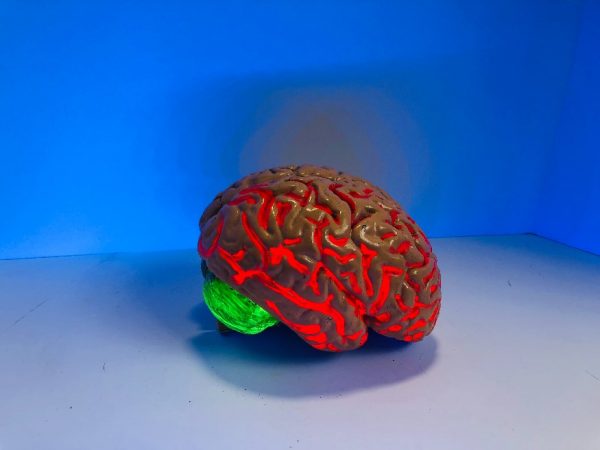
Brain age may predict the early death !
Aging does not affect humans uniformly. Because of this reason, it is hard to predict what happens after certain age or when death happens. Some elderly people’s brains appear older than the age on their birth certificates. Scientists around the world are working to find reliable biomarkers that can be used to measure age. In a recent study (published in J of Molecular psychiatry) researchers from Imperial and the University of Edinburgh, London used a neuroimaging technique to understand whether the brain age can spot the risk of poor health and even possibility of dying at younger age. A method for predicting someone’s ‘brain age‘ based on images of their brain could help to spot who might be at increased risk of poor health and even dying at a younger age.
The technique is a long way from being used in clinical practice. However researchers are hopeful to use the technique in near future as a screening tool for this important purpose. Tool is hopefully will be helping to identify those at risk of cognitive decline and dying before the age of 80, providing an opportunity for early intervention.
This technique was tested on a study population of older adults in Scotland. Researchers found out that the greater the difference between a person’s brain age and actual age- higher is the person’s risk of poor mental and physical health and early death!
By combining MRI scans with machine learning algorithms, a team of neuroscientists led by researchers at Imperial College London, has trained computers to provide a predicted brain age for people based on their volume of brain tissue.
“We’ve come up with a way of predicting someone’s brain age based on an MRI scan of their brain,” explained Dr James Cole, a research associate in the Department of Medicine, who led the study.
“Our approach uses the discrepancy between their chronological age and what we call their brain-predicted age as a marker of age-related atrophy in the brain. If your brain is predicted to be older than your real age than that reflects something negative may be happening.”
Dr Cole added: “It could be that if your brain looks older than it should do, it could be an indication that something bad has happened or is happening and should put you more at risk of age-related brain disease or cognitive impairment, and the data we have so far seems to back that up, at least at the group level.”
A technique was first developed in 2010 that measures the brain volume to estimate the overall loss of grey and white matter during ageing process of the brain. Dr Cole took this basic technique and refined it by testing it on publicly available datasets of MRI scans of more than 2,000 healthy people’s brains, resulting in normalized maps which accurately predicted the person’s age.
Following this fine-tuning, it was then applied to scans of 669 people from the Lothian Birth Cohort 1936, a well-studied group of adults all born in 1936 who had undergone MRI scans at age 73, giving them a score for predicted brain age. In the process, the research team found a marked difference in people whose brains measure as older than their chronological age. They tend to have weaker grips, poorer lung function, slower walking speed and their bodies have suffered more wear and tear. They were worse at solving new problems, and showed poorer performance when applying logic and identifying patterns. Crucially, those with ‘older brains’ were statistically more likely to die before the age of 80, with the average discrepancy between brain age and chronological age being eight years for deceased males and two years for deceased females.
“In the long run it would be great if we could do this accurately enough so that we could do it at an individual level,” said Dr Cole. “Someone could go to their doctor, have a brain scan and the doctor could say ‘your brain is 10 years older than it should be’, and potentially advise them to change their diet or lifestyle or to start a course of treatment. However, at the moment, it’s not sufficiently accurate to be used at that sort of individual level.”
According to Cole the study’s findings support the use of magnetic resonance imaging (MRI) scans of the brain as a screening tool to help identify people at greater risk of general functional decline and mortality during ageing.
This is summary of research article that was published in: Brain age predicts mortality, Cole, J et al., Molecular Psychiatry, doi:10.1038/mp.2017.62, published 25 April 2017.
Image credit: Photo by Natasha Connell on Unsplash (Free for commercial use)
Author: Sumana Rao | Posted on: August 10, 2022
« August is National Immunization Awareness Month What Youngsters need to know about Monkeypox -Guidelines to stop spreading monkeypox »






















Write a comment